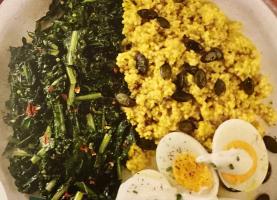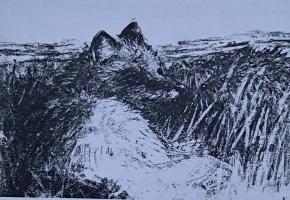Copy Link
Add to Bookmark
Report
dictyNews Volume 43 Number 17

dictyNews
Electronic Edition
Volume 43, number 17
August 4, 2017
Please submit abstracts of your papers as soon as they have been
accepted for publication by sending them to dicty@northwestern.edu
or by using the form at
http://dictybase.org/db/cgi-bin/dictyBase/abstract_submit.
Back issues of dictyNews, the Dicty Reference database and other
useful information is available at dictyBase - http://dictybase.org.
Follow dictyBase on twitter:
http://twitter.com/dictybase
=========
Abstracts
=========
Dictyostelium discoideum: A model system for cell and developmental
biology
Sabateeshan Mathavarajah, Ana Flores, Robert J. Huber
Department of Biology, Trent University, Peterborough, Ontario,
Canada
Current Protocols Essential Laboratory Techniques, in press
The social amoeba Dictyostelium discoideum has long served as a
model system for studying fundamental processes in cell and
developmental biology. This eukaryotic microbe is also recognized as
a model organism for biomedical and human disease research since
the genome encodes a large number of homologs of genes linked to
human disease, such as those linked to cancer and neurodegeneration.
Dictyostelium has a unique life cycle composed of a unicellular growth
phase and a multicellular developmental phase that is induced by
starvation. During its life cycle, Dictyostelium undergoes conserved
cellular processes, including but not limited to, cell proliferation,
phagocytosis, intercellular signalling, cell adhesion and motility,
chemotaxis, and cell differentiation. The history of the organism, the
resources available to researchers in the community, and the diverse
ways that Dictyostelium is used in the contemporary research lab are
discussed.
submitted by: Robert Huber [roberthuber@trentu.ca]
———————————————————————————————————————
Homeodomain-like DNA binding proteins control the haploid-to-diploid
transition in Dictyostelium
Katy Hedgethorne, Sebastian Eustermann, Ji-Chun Yang, Tom E. H.
Ogden,David Neuhaus, Gareth Bloomfield
MRC Laboratory of Molecular Biology, Cambridge, UK.
Science Advances, in press
Homeodomain proteins control the developmental transition between
the haploid and diploid phases in several eukaryotic lineages, but it is
not known whether this reflects the ancestral condition or, instead,
convergent evolution. We have characterized the mating-type locus of
the amoebozoan Dictyostelium discoideum, which encodes two pairs of
small proteins that determine the three mating types of this species;
none of these proteins display recognizable homology to known families.
We report that the nuclear magnetic resonance structures of two of them,
MatA and MatB, contain helix-turn-helix folds flanked by largely disordered
amino- and carboxyl-terminal tails. This fold closely resembles that of
homeodomain transcription factors, and, like those proteins, MatA and
MatB each bind DNA characteristically using the third helix of their folded
domains. By constructing chimeric versions containing parts of MatA and
MatB, we demonstrate that the carboxyl-terminal tail, not the central DNA
binding motif, confers mating specificity, providing mechanistic insight into
how a third mating type might have originated. Finally, we show that these
homeodomain-like proteins specify zygote function: Hemizygous diploids,
formed in crosses between a wild-type strain and a mat null mutant, grow
and differentiate identically to haploids. We propose that Dictyostelium
MatA and MatB are divergent homeodomain proteins with a conserved
function in triggering the haploid-to-diploid transition that can be traced
back to the last common ancestor of eukaryotes.
submitted by: Gareth Bloomfield [garethb@mrc-lmb.cam.ac.uk]
==============================================================
[End dictyNews, volume 43, number 17]





















